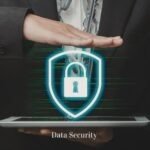Table of Contents
Introduction of Cybersecurity
Cybersecurity is a critical aspect of navigating the digital world safely. It encompasses measures and practices aimed at protecting systems, networks, and data from digital attacks. In today’s interconnected landscape, where individuals and organizations rely heavily on digital technologies, understanding cybersecurity fundamentals is paramount. This article presents ten crucial tips to improve your understanding of cybersecurity and strengthen your digital security stance.
Keep Software Updated
One of the foundational principles of cybersecurity is keeping software updated. Software updates often contain patches and fixes for known vulnerabilities, addressing weaknesses that cybercriminals could exploit. Neglecting software updates leaves systems and devices susceptible to malware, ransomware, and other cyber threats. Therefore, it’s crucial to regularly update operating systems, applications, and security software to bolster defences against potential attacks.
Use Strong Passwords
Passwords act as the first line of defence against unauthorized access to accounts and devices. Creating solid and complex passwords significantly reduces the risk of compromise. Steer clear of easily predictable passwords such as “123456” or “password,” and instead, choose a mix of letters, numbers, and special characters for better security. Additionally, consider using passphrase-based passwords, which are longer and more secure than traditional passwords.
Enable Two-Factor Authentication
Two-factor authentication (2FA) adds an extra layer of security to accounts by requiring users to provide two forms of verification before gaining access. This process could include entering a password and then inputting a unique code sent to a mobile device. By enabling 2FA, users can mitigate the risk of unauthorized access, even if their passwords are compromised. It serves as an effective deterrent against phishing attacks and unauthorized logins.
Be Cautious of Phishing Attempts
Phishing remains one of the most prevalent cyber threats, relying on social engineering tactics to trick individuals into revealing sensitive information such as login credentials or financial details. Phishing attempts often take the form of deceptive emails, messages, or websites designed to mimic legitimate entities. To avoid falling victim to phishing scams, users should exercise caution when interacting with unsolicited communications and refrain from clicking on suspicious links or attachments.
Regularly Backup Data
Data loss may happen due to a range of reasons, including hardware malfunctions, malware attacks, or unintentional deletion. Consistently backing up data guarantees that vital information can be retrieved should a cyber incident or system failure occur. It’s essential to implement a comprehensive backup strategy that includes both onsite and offsite backups to mitigate the risk of data loss effectively. Cloud-based backup solutions offer convenient and secure options for storing data offsite.
Educate Yourself and Others
Cybersecurity is a dynamic field characterized by constant evolution and innovation. Continuous learning is crucial for staying abreast of emerging threats and best practices. Individuals should take advantage of online resources, courses, and workshops to enhance their cybersecurity knowledge and skills. Additionally, fostering a culture of security awareness within families, organizations, and communities is essential for promoting safe digital practices and mitigating cybersecurity risks.
Secure Your Network
Securing your home or business network is paramount for safeguarding connected devices and sensitive information. Implementing robust network security measures, such as firewalls, intrusion detection systems, and encryption protocols, helps prevent unauthorized access and data breaches. It’s advisable to regularly update router firmware, change default passwords, and segment network traffic to enhance overall security posture.
Use Secure Wi-Fi Connections
Public Wi-Fi networks present significant security risks due to their inherent vulnerabilities. Hackers can intercept data transmitted over unsecured Wi-Fi connections, potentially compromising sensitive information. When accessing public Wi-Fi networks, users should use virtual private networks (VPNs) to encrypt internet traffic and enhance privacy. Additionally, it’s essential to verify the authenticity of Wi-Fi networks and avoid conducting sensitive transactions on unsecured networks.
Install Antivirus Software
Antivirus software plays a vital role in detecting and mitigating malware threats, including viruses, worms, and trojans. Installing reputable antivirus software on devices helps defend against malicious software and prevents infections that could compromise system integrity and data confidentiality. Users should ensure that antivirus software is regularly updated to detect and neutralize emerging threats effectively.
Monitor Your Accounts Regularly
Regularly monitoring accounts for suspicious activity is crucial for detecting signs of unauthorized access or compromise. Individuals should routinely review account statements, transaction histories, and login records for any anomalies or discrepancies. Promptly reporting any unauthorized activity to relevant service providers enables swift action to mitigate potential security breaches and minimize associated risks.
Limit Access to Personal Information
Be careful when sharing personal information online to reduce the chance of identity theft and fraud. Avoid disclosing sensitive details such as full names, addresses, phone numbers, or financial information unless necessary. Review privacy settings on social media platforms and other online accounts to restrict access to personal data and minimize exposure to potential threats.
Stay Informed About Cyber Threats
Cyber threats are continually evolving, requiring individuals and organizations to remain vigilant and proactive in their cybersecurity efforts. Staying informed about the latest threats, vulnerabilities, and cybersecurity trends is essential for effectively mitigating risks. Following reputable cybersecurity blogs, news outlets, and industry reports provides valuable insights into emerging threats and best practices for protecting against them.
Seek Professional Help When Needed
In cases where cybersecurity issues exceed individual expertise, seeking professional assistance is advisable. Consulting with cybersecurity experts, IT professionals, or reputable security firms can help assess and address security vulnerabilities effectively. Investing in professional cybersecurity services provides peace of mind and ensures robust protection against cyber threats.
Conclusion
In conclusion, enhancing cybersecurity knowledge is crucial for navigating the digital landscape safely and securely. By implementing the ten essential tips outlined in this article, individuals can strengthen their defenses against cyber threats and protect their digital assets and privacy. Remember to prioritize cybersecurity in all digital activities and remain proactive in adopting security best practices.










